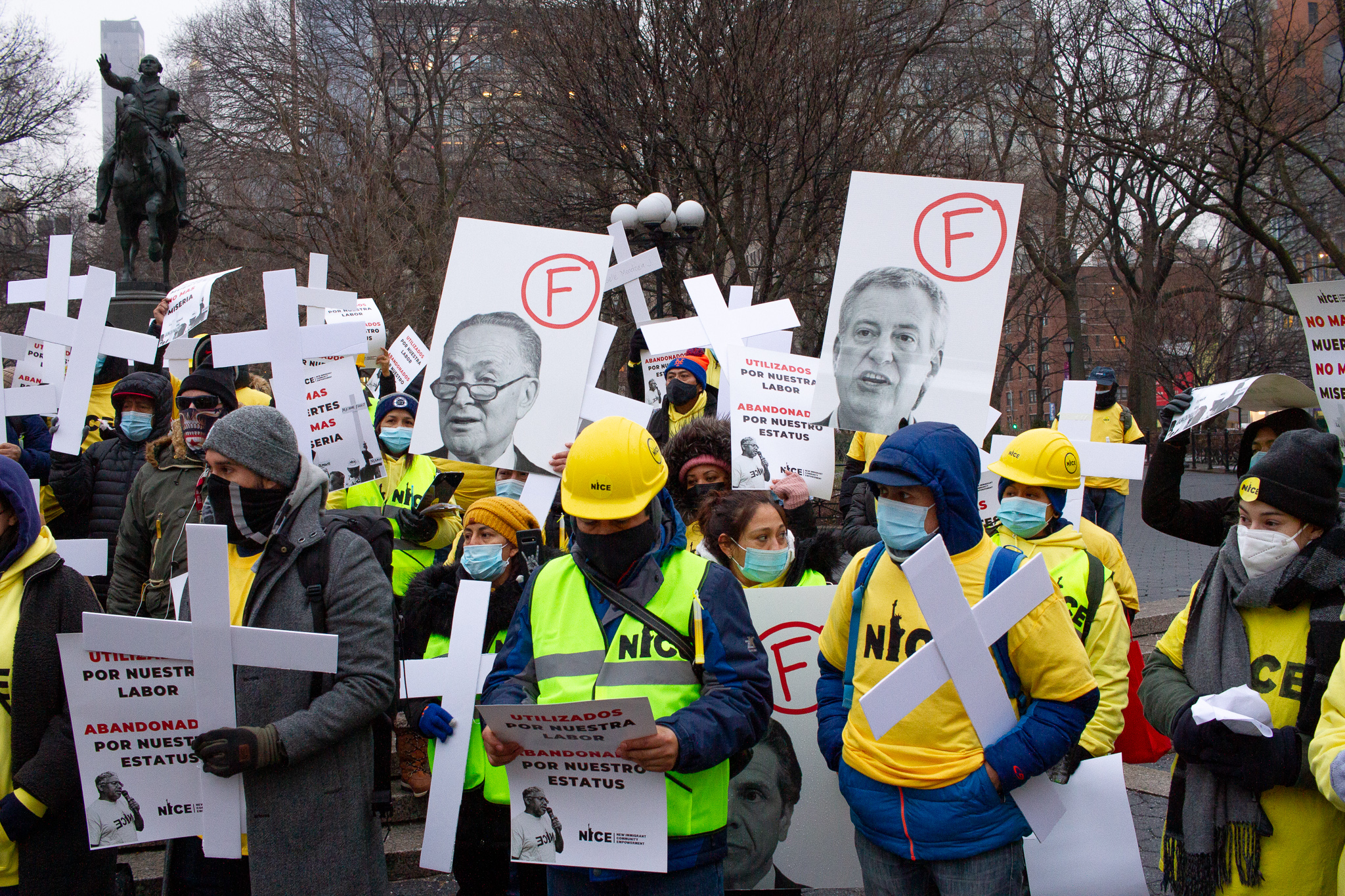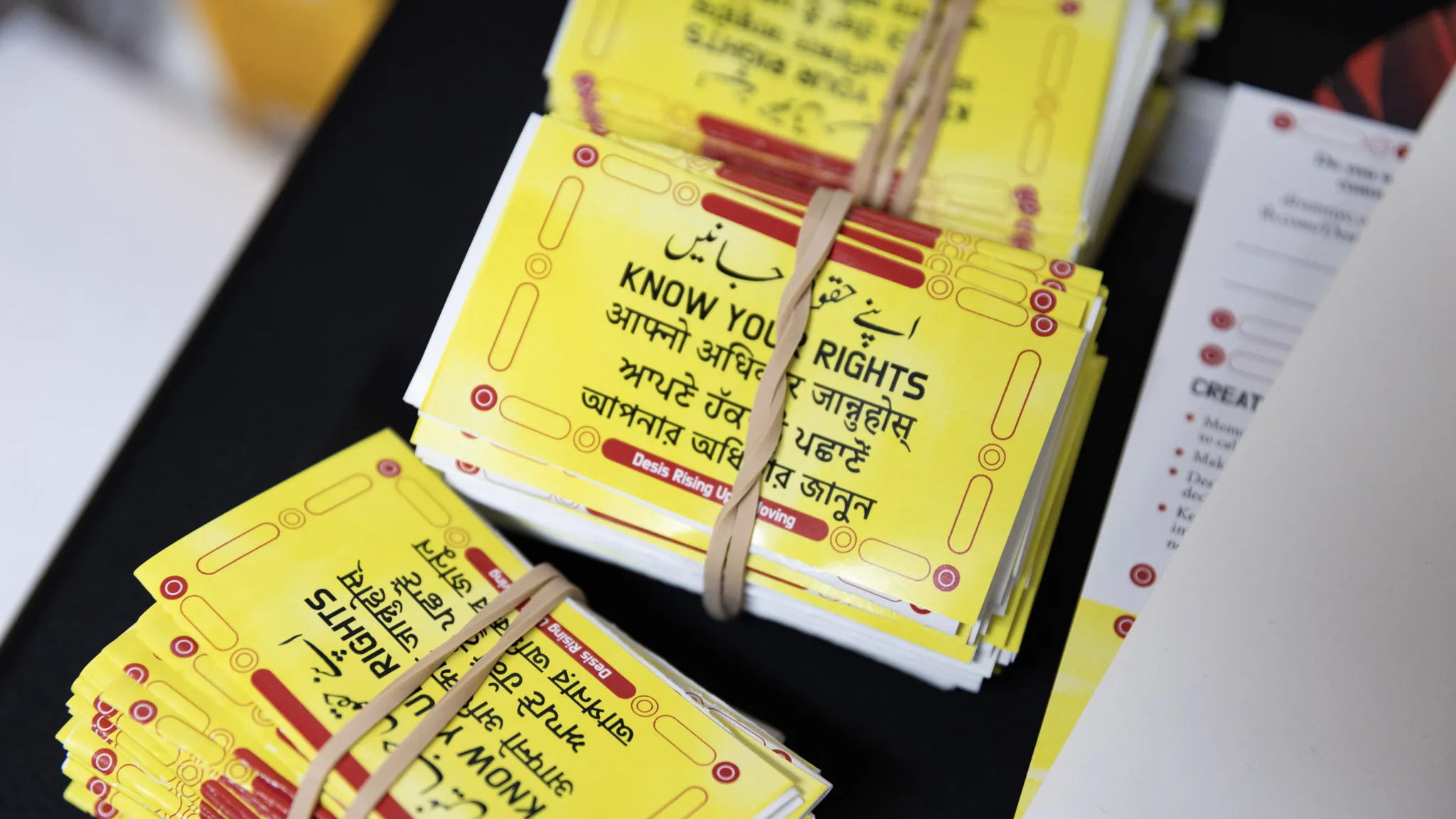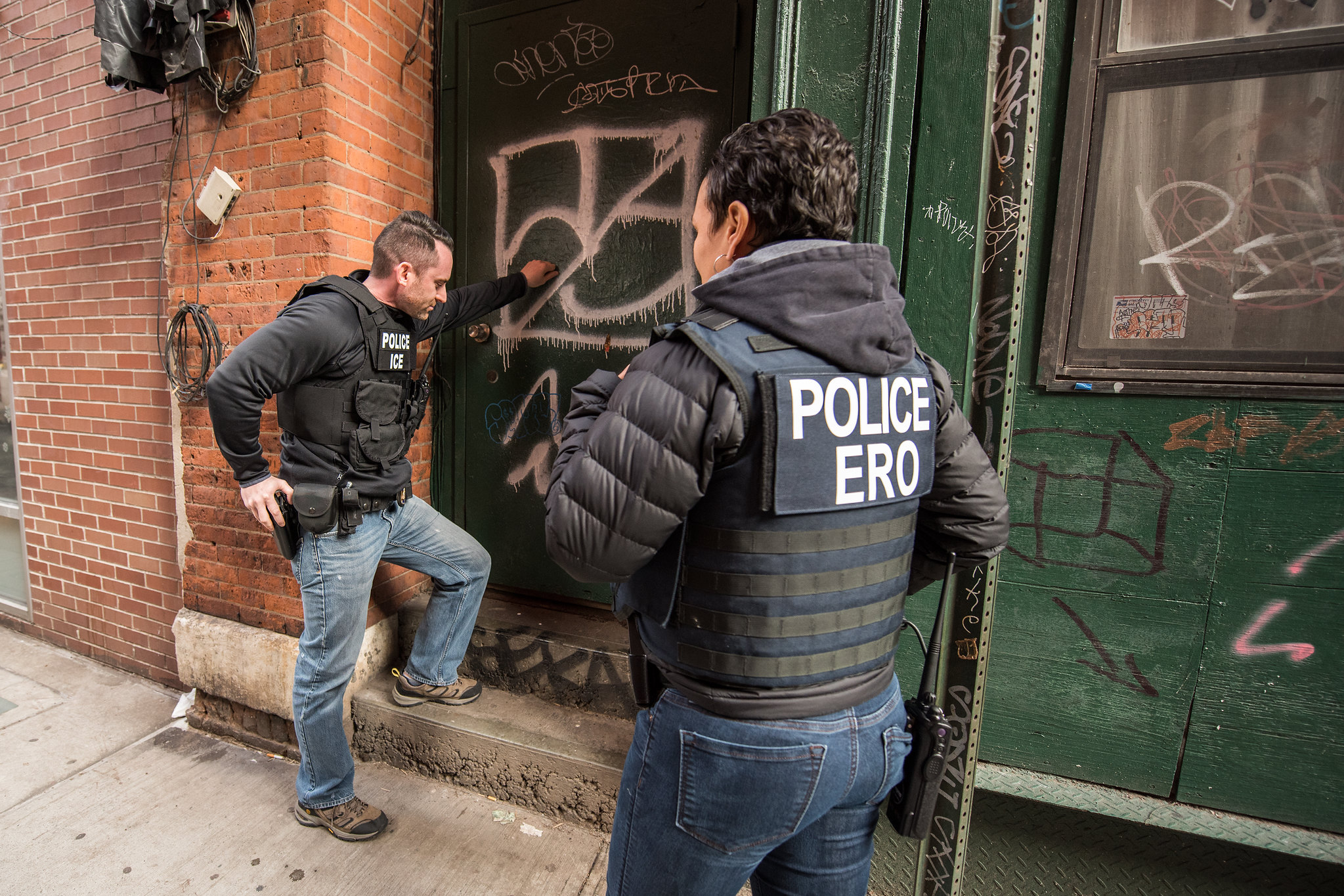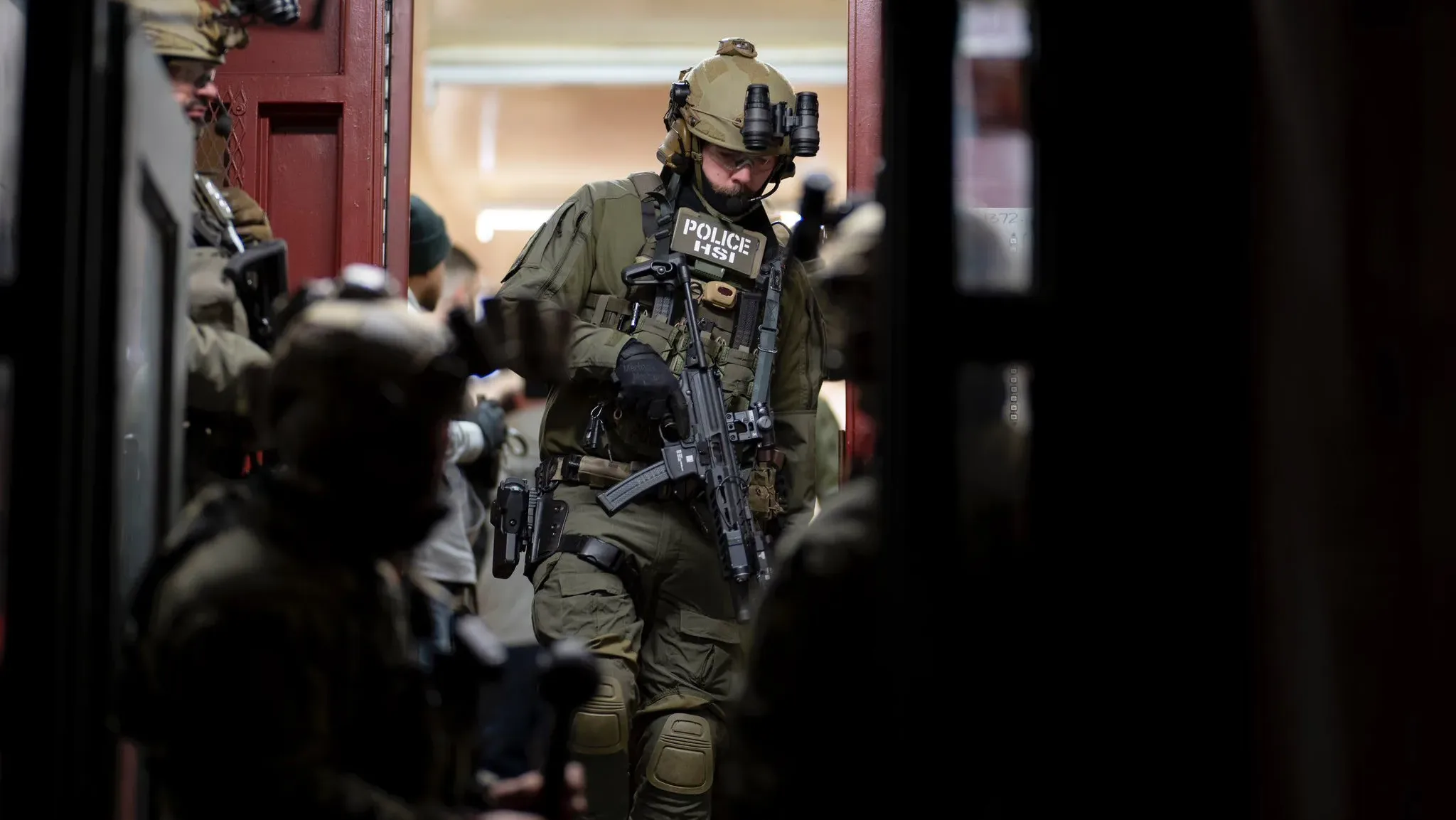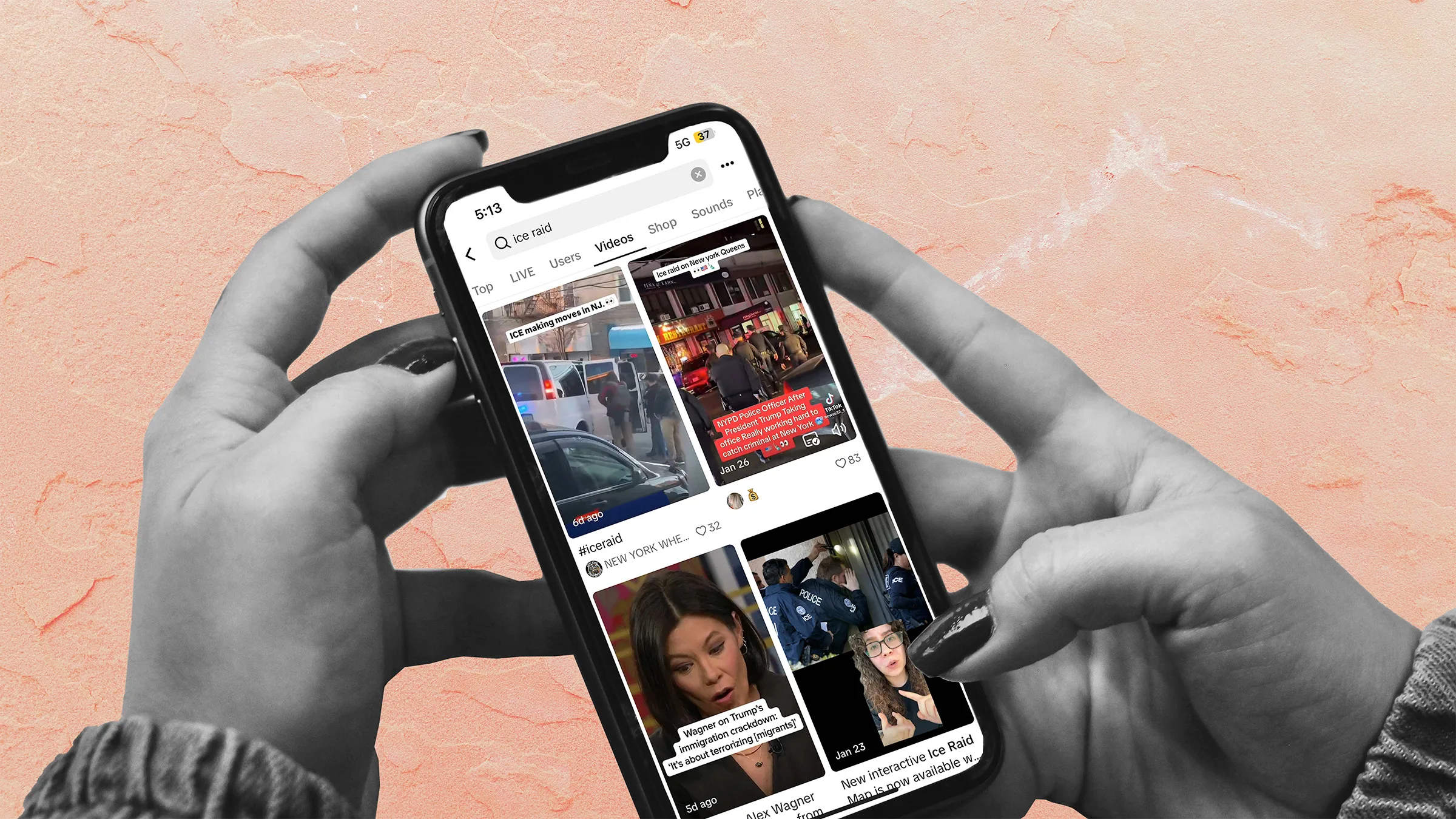This story was co-published with City & State
Gertrudes has not escaped the pain since the coronavirus pandemic began. She caught COVID-19 in mid-March of last year and endured five days hospitalized on oxygen. She threw out her mattress as soon as she returned home to the East Harlem studio apartment she shares with her three kids because she feared it might still hold the deadly virus. “I still sleep on the floor because we haven’t been able to save for a new one,” she said through an interpreter in a recent interview. And to make matters worse, the food cart vendor has to pay back nearly $10,000 in outstanding rent. It is quite a challenge for the 43-year-old single mother from Guerrero, Mexico, who asked that only her first name be used because she is undocumented.
There are many Gertrudes across a state of 19 million people, whether the coronavirus brought them poverty, sickness or just bad luck. Nearly one million New Yorkers remain out of work compared to last March. Tens of thousands of tenants owe back rent. Once bustling places like Midtown Manhattan remain eerily empty. Nationally, more than half of small businesses have over $100,000 in debt. Multiple relief packages passed by Congress have funneled billions of dollars to beleaguered businesses and individuals, but not everyone has received the help they need. Those people are now depending on the state to deliver. “I still have not returned completely (to work),” Gertrudes said. “The pandemic has impacted my life. I have my children at home. My little daughter, I cannot leave her, so I cannot even go out.” She is holding out hope that the state government can help, considering how her immigration status limits her access to federal aid programs.
The just-announced $212 billion state budget agreement includes many items to advance the state’s recovery from the pandemic. This includes initiatives to bridge the “digital divide,” a $2.35 billion rent relief program and a groundbreaking $2.1 billion Excluded Workers Funds to help undocumented people who did not qualify for federal relief programs.
Still, many people are nonetheless likely to fall through the holes in the expanded social safety net, according to interviews with more than two dozen progressive policy experts, legislators and activists. “To those that fought hard to set up roadblocks to eligibility, you won,” Assembly Member Marcela Mitaynes of Brooklyn, who joined a hunger strike in favor allocating an additional $1.4 billion to the Excluded Workers Fund, said on April 7 while explaining her vote against a budget bill.
COVID-19 has lived up to its moniker as the Great Unequalizer. Black families are twice as likely to be behind on rent and three times more likely to face hunger than their white counterparts, according to an April 5 report by the progressive think take Center on Budget and Policy Priorities. These disparities are particularly acute in New York, which has more ultrarich people than just about anywhere else on Earth and some of the most segregated neighborhoods in the nation. Their financial gains have continued through the pandemic as the stock market reaches record highs following a multitrillion-dollar injection of federal money into the battered economy.
These gains by the wealthy have turbocharged longtime efforts to address income inequality by raising their taxes, whether that involves personal income, inherited wealth, stock purchases, luxury yachts or Manhattan pieds-à-terre. “The state had many unmet needs prior to the COVID-19 pandemic, and the budget, therefore, must go further in raising revenue to maintain and expand vital services,” Jonas Shaende, chief economist of the liberal think tank Fiscal Policy Institute, told lawmakers at a February legislative hearing on taxes. Projected revenues in excess of $50 billion might have been overly optimistic, especially if higher taxes drive some rich New Yorkers out of the state, but higher taxes meant more money on the table.
After watching the centrist Democratic governor dominate the budget negotiation process during his first 10 years in office, liberal lawmakers seemed primed to finally get their way this year. A litany of scandals have damaged Gov. Andrew Cuomo’s political standing, with Assembly Speaker Carl Heastie overseeing an ongoing impeachment probe and state Senate Majority Leader Andrea Stewart-Cousins having called for Cuomo’s resignation. Democrats also won a supermajority in the state Senate last year, to go along with an existing one in the Assembly, and some of the newest members of both chambers are more assertively progressive than most longtime legislators. And then there is the $12 billion influx in new federal aid that undermined Cuomo’s calls for fiscal restraint.
Even before the recent embarrassing headlines, Cuomo has been gradually embracing more progressive initiatives, and he adopted soaring rhetoric to describe his own agenda for the budget’s pandemic recovery measures. “We’re going to rebuild this state,” Cuomo said on April 5. “And not just rebuild it, we’re going to reimagine it. We’re going to reinvent it. We’re going to take it to a place it’s never been before.” Many proposals he outlined in January made it into the budget. Renewable energy projects like offshore wind and new transmission lines will bring more green energy to the downstate area. A new public health corps will join the ongoing fight against COVID-19. Pre-K education is getting expanded across the state.
Democratic legislators ended up prevailing over Cuomo’s reluctance to increase income taxes on people making more than $1 million per year, which is expected to raise more than $4 billion annually. Hundreds of millions of dollars in projected revenues could also come through the legalization of mobile sports betting. Revenues are also getting a boost from the recent legalization of recreational marinjuana though that money, like expanded gambling, will take years to materialize. Some of this money had to go towards plugging a multibillion state budget deficit inherited from the before times and made worse by the pandemic, but that still leaves billions to spend on expanded social programs.
In other areas, however, compromises between the governor and the Legislature resulted in scaled-back ambition. Research by the Fiscal Policy Institute shows that society as a whole greatly benefits when undocumented immigrants are helped. A fund for these “excluded workers” could directly help more than 100,000 people across the state, if it received enough funding. “This new fund would provide money that allows people who can’t find a job to pay rent to landlords, electric bills to utility companies, and money at the register to grocery stores – all of which help keep the local economy afloat,” reads the report. But moderate Democrats ended up getting politically skittish about providing direct cash assistance to undocumented immigrants after Republicans began raising a fuss in the media. The fund received a little over half of the $3.5 billion that progressive lawmakers and activists wanted. “If the recovery isn’t for everyone, then no one recovers,” Murad Awawdeh, interim co-executive director of the New York Immigration Coalition said, in an interview. “If we’re in it together at the worst part of our state’s history, we’ve got to be in it together as we come out of that.”
Efforts to expand broadband also fell short of what some say is necessary to bridge the “digital divide,” especially given how COVID-19 has highlighted disparities in access to high-speed internet and technology. Affordable broadband is essential to New York’s future – to advance education, secure the economic success of its residents and businesses, provide healthcare, and enable all New Yorkers to thrive,” reads a report released March 31 by the Reimagine New York Commission appointed by the governor last April and chaired by former Google CEO Eric Schmidt. The final budget includes funding for a Cuomo-backed initiative to subsidize $15 per month broadband service plans for low-income people. That low price beats the status quo, according to Brad Hansen, public policy director at the child advocacy group Families Together in New York State, but it still means that some people would not be able to afford it. “I don’t really believe that $15 a month is what we should be going with,” he said in an interview. “When you’re living off of $300 a week, that would be a tough call.”
Who does and does not benefit from the new social spending in the budget often comes down to issues of eligibility. The USA Today Network reports that undocumented people could receive up to $15,000 in benefits from the Excluded Workers Fund if they have a Tax Identification Number, can prove state residency for at least 60 days and have earned less then $26,000 over the past year. It remains to be seen how low-income people will be able to access these new aid programs, especially if they work in the informal economy with little documentation of past and present earnings.
The new $2.4 billion rent relief program allows undocumented people to recieve aid as long as they otherwise meet eligibility requirements and their landlord agrees to accept the money, which requires landlords to agree to no rent increase for the subsequent year. The federal government provided the vast majority of the $2.4 billion, with just $100 million coming from the state – a fourth of the money originally sought by Democratic lawmakers.
New York has done a few novel things with the rent relief, according to Cea Weaver, campaign coordinator of the tenant advocacy group Housing Justice for All. Landlords must agree to give up eviction efforts and grant tenants one-year lease renewals in order to be eligible to receive back rent from the state. Undocumented immigrants like Gertrudes will have the explicit right to apply. Yet, other rent programs unveiled over the past year have fallen short of legislators’ promises. A previous round of rent relief that allocated just $7 million of the $60 million in funding it had received. “The devil’s going to be in the details,” Weaver said in an interview. “I’m still really worried about how quick they are going to get the money out the door.
Lawmakers appear to have beaten Cuomo in a yearslong fight over public school funding by securing a $1.4 billion boost for districts across the state. An antiquated funding formula for public schools, which still uses 2000 census data, remains on the books.
The social safety net has caught Gertrudes and her three kids from hitting rock bottom at times. The hospital forgave her hefty medical bills. City schools provided tablet computers for online learning. She can buy groceries with the help of food stamps because her children are U.S. citizens.
But her nine-year-old son now fears going outside after a year spent largely inside a studio apartment in East Harlem. “I tell him ‘come with me’ and he starts crying and says: ‘No, I’m not going out.’ I tell him: ‘We’re only going to the corner’ and he says, “No, I’m not coming; I don’t want to die of COVID.’” While he eventually stepped outside, he still requires therapy, like many children across New York, which is one more thing for Gertrudes to manage along with her outstanding rent bill.
Her family has not survived the pandemic alone. A neighbor lent her money when she needed it most. A local community organization has helped her get diapers for her toddler. While she waits for help from the state, she also sees many other people are struggling to get by. That puts things in perspective for her. “There are other neighbors who are going through the same struggle,” she added. “We meet in the same lines at the food pantries.”
With reporting by Nicolás Ríos, Annie McDonough, Rebecca Lewis and Jasmine Sheena
